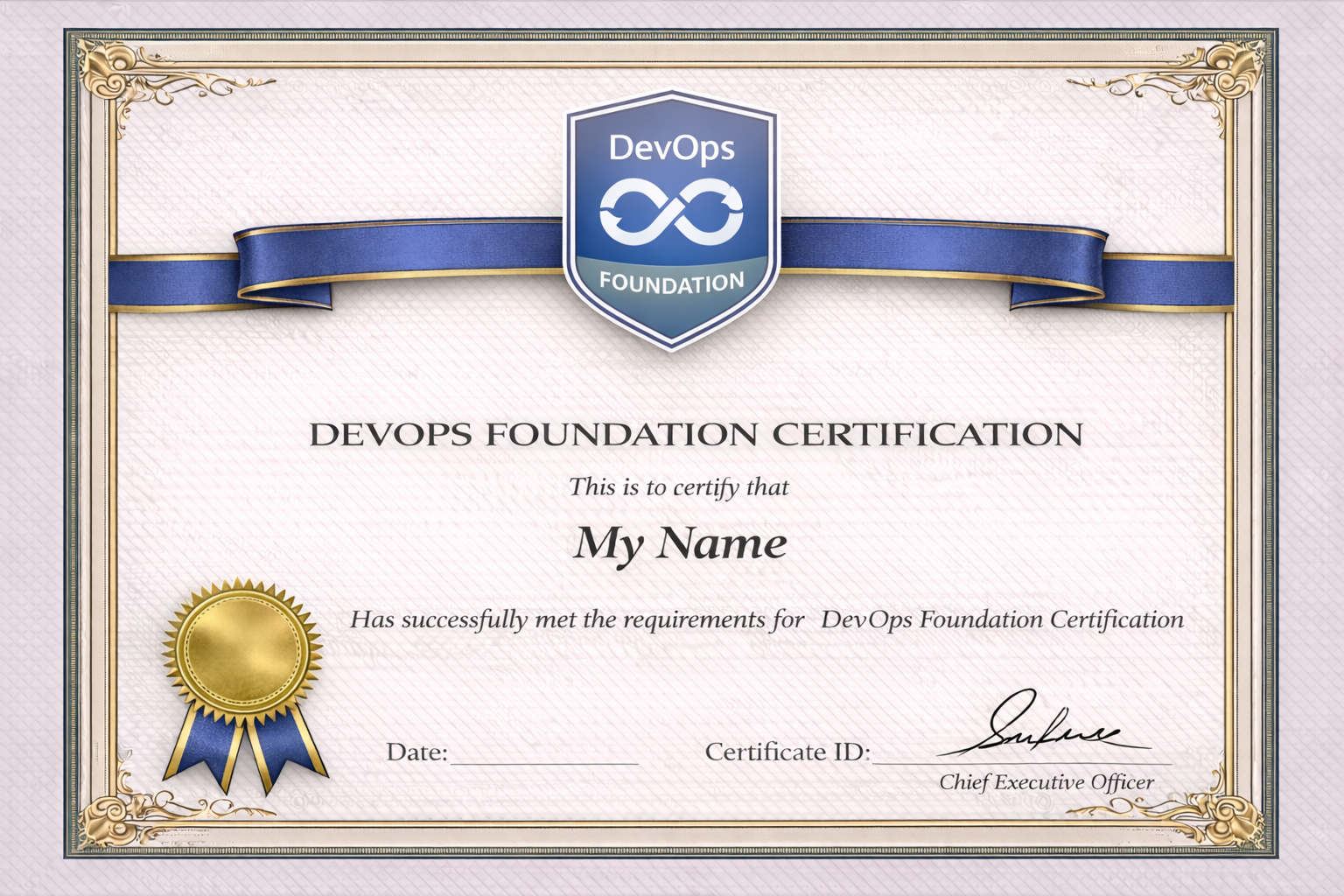DevOps Foundation Course Overview
The DevOps Foundation Training Certification is an entry-level course designed to introduce individuals to the principles and practices of DevOps. DevOps is a set of practices that combine software development (Dev) and IT operations (Ops), aiming to shorten the systems development life cycle and provide continuous delivery of high-quality software.
This training provides an understanding of the key concepts and components of the DevOps framework, such as automation, collaboration, monitoring, and the importance of a cultural shift in IT organizations. It equips participants with the foundational knowledge required to implement DevOps processes, enhance collaboration between development and operations teams, and improve overall software delivery performance.
In-Demand Skillset: DevOps is a rapidly growing field. With more organizations adopting DevOps practices to improve software delivery and IT infrastructure, certified professionals are in high demand.
Career Advancement: This foundational certification can help you advance in your career by demonstrating your knowledge of DevOps principles, practices, and tools.
Increased Collaboration: Learn how to collaborate effectively across different teams in an organization, improving communication between development, operations, and other departments.
Continuous Improvement: Gain the skills needed to create an environment of continuous improvement by automating processes and improving collaboration.
Business Value: Help organizations increase the speed and quality of software delivery, thus enabling them to respond to market demands more effectively.
The job market for DevOps professionals is expanding as organizations across industries move towards agile and continuous delivery practices. The demand for DevOps professionals continues to rise as businesses strive to improve software quality and speed, reduce costs, and increase collaboration between development and operations teams.
Common DevOps job roles include:
DevOps Engineer
DevOps Consultant
Release Manager
Continuous Integration/Continuous Deployment (CI/CD) Engineer
Automation Engineer
Cloud Engineer
Infrastructure Engineer
Site Reliability Engineer (SRE)
DevOps professionals can expect to work in a wide range of industries, including technology, e-commerce, financial services, and healthcare, as organizations seek to improve the efficiency of their software delivery pipelines and infrastructure management.





